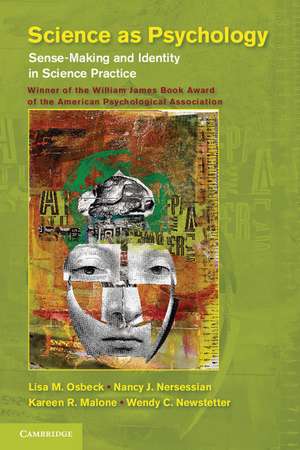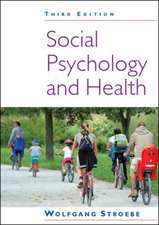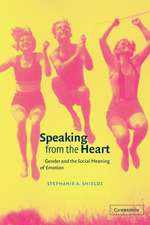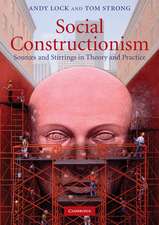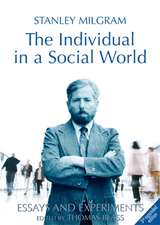Science as Psychology: Sense-Making and Identity in Science Practice
Autor Lisa M. Osbeck PhD, Nancy J. Nersessian PhD, Kareen R. Malone PhD, Wendy C. Newstetteren Limba Engleză Paperback – 11 aug 2013
| Toate formatele și edițiile | Preț | Express |
|---|---|---|
| Paperback (1) | 317.29 lei 6-8 săpt. | |
| Cambridge University Press – 11 aug 2013 | 317.29 lei 6-8 săpt. | |
| Hardback (1) | 467.89 lei 6-8 săpt. | |
| Cambridge University Press – 21 noi 2010 | 467.89 lei 6-8 săpt. |
Preț: 317.29 lei
Nou
Puncte Express: 476
Preț estimativ în valută:
60.73€ • 65.99$ • 51.05£
60.73€ • 65.99$ • 51.05£
Carte tipărită la comandă
Livrare economică 21 aprilie-05 mai
Preluare comenzi: 021 569.72.76
Specificații
ISBN-13: 9780521708418
ISBN-10: 0521708419
Pagini: 288
Ilustrații: 3 b/w illus.
Dimensiuni: 152 x 229 x 15 mm
Greutate: 0.41 kg
Ediția:New.
Editura: Cambridge University Press
Colecția Cambridge University Press
Locul publicării:New York, United States
ISBN-10: 0521708419
Pagini: 288
Ilustrații: 3 b/w illus.
Dimensiuni: 152 x 229 x 15 mm
Greutate: 0.41 kg
Ediția:New.
Editura: Cambridge University Press
Colecția Cambridge University Press
Locul publicării:New York, United States
Cuprins
1. Introduction: science and persons; 2. Methods of study; 3. The problem-solving person; 4. The feeling person; 5. The positioning person; 6. The person negotiating cultural identities; 7. The learning person; 8. Epilogue: science as psychology: a tacit tradition and its implications.
Recenzii
'In Science as Psychology, three psychologists and an expert in the philosophy and cognitive science of science have produced a valuable contribution that takes the field of psychology of science in fascinating new directions … provides fascinating data about sense-making and identity in scientific laboratories … the book contributes to a valuable trend to elevate the psychology of science to full partnership within science studies.' Paul Thagard, Metascience
Notă biografică
Descriere
Reveals the complexity and richness of rationality by demonstrating how social relationships, emotion, culture, and identity are implicated in the problem-solving practices of laboratory scientists.
